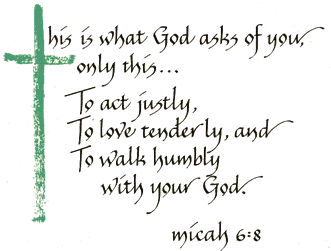catholicPittsburgh.org is the place for information, news, commentary, reflections and community building among the people of God who are renewing the Catholic Church in Western Pennsylvania.
More about us
Welcome ...
Partnering Groups
The following organizations are partners with catholicPittsburgh.org:
Room
Reflections on the Second Sunday of Easter
By Carolyn A. Fronapel
The readings for
this Sunday:
When we think about the coming of the Spirit, we usually remember the dramatic events recounted in Acts 2:1-11. Our imagination is captured by the rushing wind and the tongues of fire, the miraculous communication of the good news in myriad languages and bold speech bursting from people who earlier had been frozen with fear. In the Gospel of John, however, the coming of the Spirit is imagined much differently. In the Passion narrative of Good Friday, Jesus yields the Spirit with his last breath. In the passage we read this Sunday, he breathes it anew, this time onto the gathered disciples. Here there are no crowds, for the dangerous public is locked out of the place where they are gathered. No bold speech is uttered. They see no tongues of flame – only the wounded but risen Jesus who wishes them peace and sends them to forgive and set free.
But then the scene darkens. One of the disciples has missed the encounter with the living Jesus and comes back to find himself radically out of step. Thomas hasn’t shared the vision; his companions’ joy is like fantasy to him. Though he has traveled the journey of discipleship with these people, he is not willing to leap to the conclusions they have reached. They may have seen the Lord, but he has seen the facts….and until the facts sort themselves out into a different configuration, he can’t pretend. He doesn’t hide where he stands about all this, but declares to his community what the integrity of his own seeking faith requires.
Imagine.
What happens next – actually, what doesn’t happen -- floors me every time I read it. They don’t throw him out for his statement of unbelief, and he doesn’t leave their company to work out his bitterness alone. He stays; they make room. It seems to me that this is the work of the breathed-out Spirit, this honesty and tolerance within which those who have seen and those who have not seen can travel together into faith. This forgiveness liberates and makes room in their common experience for the presence of Jesus.
Do we have it in us as a church to create that space for one another, to hold both the certainty of the certain and the painful or angry raggedness of those who do not see what we see? Do we have the courage as members of parishes and small communities to declare the margins of our faith when, for whatever reason, we ourselves do not share the vision? Do we have the humility to let ourselves be carried by the faith of others -- the local church or the whole communion of saints -- until our own day comes and our own hearts cry out “My Lord and my God”?
St. Thomas, Apostle, pray for us. Spirit of the living God, fall afresh and bring us peace.
- By JoeMertz at Apr 1 2005 - 12:16am
- Reflections
Micah 6:8

©1996 Cards by Anne
Used with permission